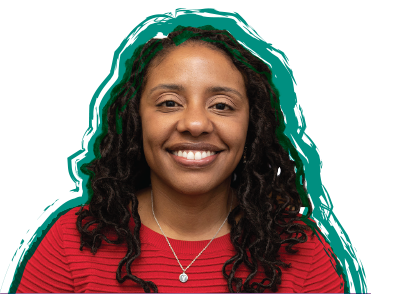

By Casey Williamson
As an academic veterinary institution, the whole of the MSU College of Veterinary Medicine is most definitely greater than our parts—this is part of what makes us special. The research, clinical, diagnostic, and educational missions at the College each strengthen and support one another. The College’s success as a leading partner in the National Institutes of Health Comparative Biomedical Scientist Training Program is one manifestation of this.
The National Institutes of Health Comparative Biomedical Scientist Training Program (CBSTP) was created by The National Cancer Institute’s Center for Cancer Research in 2003. The program is a response to the critical need for scientists capable of bringing a comparative biomedical perspective to research—a perspective fundamental to translational science.
Comparative biomedical training provides the skills and insights needed to translate findings from one species to another—including humans.
“We’ve been a partner university since the launch of the program,” says Dr. Dalen Agnew, department chair and professor in the Department of Pathobiology and Diagnostic Investigation at MSU, and mentor to several current and former scholars in the program. “We have graduated more scholars than any other partner university—it’s so rewarding to see the people you mentor making a difference in their fields.”

Trainees enter the NIH program with a degree in veterinary medicine, and graduate as PhDs poised to have an impact in academic institutions, government agencies, healthcare organizations, and the biomedical industry—and with a clear understanding of the contributions pathologists can make.
Dr. Yava Jones-Hall, now director of the Research and Diagnostic Histology Laboratories at Texas A&M University, speaks of the important role of pathologists in research.
“The NIH CBSTP program was transformative for my research career,” says Jones-Hall, who was among the first scholars in the program. “I trained with a renowned scientist and learned how to accomplish hypothesis-driven research from protocol design to experiment completion to post-experimental analyses. I gained an appreciation for research beyond the contribution of pathology and—importantly— saw the need for pathologists on the research team.”
There is now global awareness of the consequences of a disease’s ability to jump from one species to another—thanks to the virus SARS-CoV-2 and the COVID-19 pandemic. However, zoonotic diseases—and animal models of disease—also bring opportunities for scientists to ‘translate’ knowledge and therapies for human diseases. Translational science supports human health by translating knowledge generated in animal models to human disease.
“Our goal is to provide program scholars—and all trainees—the technological and analytical skills they need to become innovative scientists that will generate new knowledge in pathology,” says Agnew. “At MSU, program scholars experience truly collaborative research efforts, which are a fundamental aspect of comparative science.”
Leading scientists collaborating in world-class facilities and state-of-the-art technology—all supported by expert staff—combine to give trainees the experience that prepares them for their NIH research project and subsequent careers as pathologists.
The College’s Veterinary Diagnostic Laboratory includes a BSL-3 necropsy suite—built and operated to a biological safety level 3. A BSL-3 laboratory provides high-containment protections for working with highly infectious agents and toxins.
“Having the opportunity to work in a BSL-3 lab was a big plus when I selected MSU,” said Dr. Adrienne Glaser, a current CBSTP scholar. “BSL-3 labs are not available in all universities and since I’m interested in working with infectious diseases—the more infectious, the better!”
Sebastian’s career may often situate her in laboratories today, but it began in a rustic setting.

Yava Jones-Hall, DVM, PhD, DACVP, 2010 MSU-NIH program graduate, is now associate professor of pathology and director of the CVM Research and Diagnostic Histology Laboratories at Texas A&M University College of Veterinary Medicine & Biomedical Sciences, College Station, Texas. She was mentored by Dr. Giorgio Trinchieri at the NIH and her graduate committee at MSU included Dr. Matti Kiupel, Dr. Vilma Yuzbasiyan-Gurkan, Dr. Alison Bauer, and Dr. Mark Simpson. (Photo: Tim Stephenson/TAMU-VMBS)
In July of this year, Glaser will begin her research at Rocky Mountain Laboratories (RML), an NIH biomedical research facility in Hamilton, Montana.
Glaser is one of six current MSU CBSTP scholars. Dr. Kerry Goldin, who began the program in July 2019, is already at Rocky Mountain Laboratories, where she works with the Nipah virus. Three scholars have joined labs at the National Cancer Institute— Dr. Zachary Millman—Dr. Steven Hsu, and—Dr. Chaunte Lewis. Dr. Kyleigh Tyler is wrapping up her training at MSU and will join them at the NCI later this year.
Watching scholars learn and grow here, and
then during their research at the NIH, is such an important part of my life as a scientist and faculty member,” says Agnew. “I’m reminded that all of what we do as an academic institution—the buildings and scanners, as well as our research and writing manuscripts—is advancing science
and contributing to our future.”


Raisa Glabman, MSPH, VMD, PhD, DACVP, 2023 program graduate, comparative pathologist at the Fred Hutch Cancer Research Center, Seattle, Washington. She was mentored by Dr. Dalen Agnew at MSU and Dr. Peter Choyke and Dr. Noriko Sato at the NCI.

Chaunte Lewis, DVM, graduate scholar in the NIH Comparative Biomedical Scientist Training Program in partnership with MSU and the National Cancer Institute, July 2020-present. She is mentored by Dr. Dalen Agnew at MSU and Dr. Kandice Tanner at the NCI. Her research interests include the effects of tissue mechanical properties on tumor metastasis and further establishing the zebrafish as a model organism for cancer metastasis.
Raisa Glabman, MS, VMD, PhD, DACVP (2017–23)
Comparative pathologist,
Fred Hutchinson Cancer Center,
Seattle, WA
Caroline Andrews, DVM, PhD, DACVP (2012–18)
Veterinary pathologist,
Charles River Laboratories,
Frederick, MD
Joy Gary, DVM, PhD, DACVP (2009–15) Senior pathologist, neuropathology, StageBio, McKinney, TX
Heather Tillman,
DVM, PhD, DACVP (2008–15)
Investigative pathologist,
St. Jude Children’s Research Hospital,
Memphis, TN
Ian Moore, DVM, PhD, DACVP
(2007–14)
Director and investigative veterinary pathologist,
Pathology Division,
Emory National Primate Research Center, Atlanta, GA
Schantel Bouknight, DVM, PhD, DACVP (2005–10)
Director of pathology,
Charles River Laboratories,
Durham, NC
Yava Jones-Hall,
DVM, PhD, DACVP (2004–06 and 2007–10)
Associate professor of pathology and director,
Research and Diagnostic Histology Laboratories,
Texas A&M University College of Veterinary Medicine & Biomedical Sciences,
College Station, TX
Mark J. Hoenerhoff,
DVM, PhD, DACVP (2004–08)
Adjunct clinical professor,
University of Michigan School of Medicine, Ann Arbor, MI, and
Senior Director, investigative and molecular pathology, Inotiv.
Kerry Goldin, DVM
(2019–present)
Zachary Millman,
DVM, DACVP
(July 2019–present)
Steven Hsu, DVM, DACVP
(July 2018–present)
Chaunte Lewis, DVM
(July 2020–present)
Kyleigh Tyler, DVM
(July 2023–present)
Adrianne Glaser, DVM
(July 2023–present)